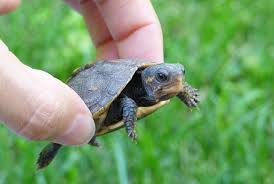Box turtles are fascinating creatures that thrive in diverse habitats, from wooded areas to grasslands. Understanding their diet is crucial for both proper care in captivity and conservation efforts in the wild. This guide will delve into the nutritional needs of box turtles and provide essential feeding tips to ensure their health and well-being. Linkhouse
Understanding Box Turtles
What are Box Turtles?
Box turtles are unique reptiles known for their distinctive hinged shell that allows them to retract their bodies for protection.
With a variety of species like the Eastern box turtle and the Western box turtle, these creatures exhibit considerable diversity in their habitats, behaviours, and dietary preferences.
Nutritional Needs
Key Nutrients for Box Turtles
A balanced diet is paramount for the health of box turtles. Key nutrients include:
- Proteins: Essential for growth and maintenance, proteins come from sources like insects and commercial pellets.
- Carbohydrates: These provide energy, mainly sourced from fruits and vegetables.
- Fats: Healthy fats are crucial, but they should be provided in moderation.
- Vitamins and Minerals: Vital for various body functions, vitamins like A and D, along with calcium, are necessary for strong shells and overall health.
Importance of a Balanced Diet
Offering a mix of these nutrients helps prevent malnutrition and supports the turtle’s immune system, ensuring a long and healthy life.
Natural Diet in the Wild
Common Food Sources
In their natural habitats, box turtles feast on a diverse array of foods, including:
- Insects and Worms: These are primary protein sources found in the wild.
- Fruits and Berries: Seasonal fruits provide essential vitamins and hydration.
- Vegetables and Leafy Greens: Critical for their hydration and fibre intake.
Seasonal variations play a significant role in their diet, with box turtles adapting their food choices based on availability.
Feeding Box Turtles in Captivity
Creating a Balanced Diet
When caring for box turtles in captivity, it is important to replicate their natural diet as closely as possible. Recommended food groups include:
- Protein Sources: Insects like crickets or mealworms, as well as high-quality commercial pellets, should form the foundation of their diet.
- Plant-based Options: A variety of leafy greens (e.g., kale, dandelion greens) and fruits should complement their meals.
Feeding Frequency and Portion Sizes
Box turtles should be fed around three to four times a week. Portion sizes should vary based on age and size, with younger turtles requiring larger relative portions compared to adults.
Tips for Feeding Box Turtles
Safe Foods to Include
Feeding box turtles safe foods is crucial. Consider including:
- Common Vegetables: Carrots, sweet potatoes, and bell peppers.
- Fruits: Strawberries, blueberries, and melons make excellent treats.
- Protein Options: Crickets, worms, and small amounts of cooked chicken.
Foods to Avoid
Certain foods can be harmful or toxic to box turtles. Be sure to avoid:
- Avocado: This fruit is toxic to turtles.
- Rhubarb: Contains harmful oxalic acid.
- High-fat Dairy: Turtles cannot properly digest dairy products.
Conclusion
A balanced diet is vital for the health and longevity of box turtles. By understanding their nutritional needs and providing a variety of safe food options, caregivers can ensure that these amazing reptiles thrive. Responsible feeding practices contribute significantly to their well-being and help maintain their populations in the wild.
FAQs
Q1: How often should I feed my box turtle?
Box turtles should be fed three to four times a week, adjusting portions based on their age and size.
Q2: Can box turtles eat fruits every day?
While fruits are a healthy treat, they should not constitute the majority of their diet; offering fruits a few times a week is ideal.
Q3: What commercial diets are best for box turtles?
Look for high-quality commercial turtle pellets specifically designed for box turtles, ensuring they contain a balanced mix of protein, vitamins, and minerals.
Q4: How do I know if my box turtle is healthy based on its diet?
A healthy box turtle will have a vibrant shell, clear eyes, active behaviour, and regular bowel movements. Monitoring their diet and eating habits is key to maintaining their health.


